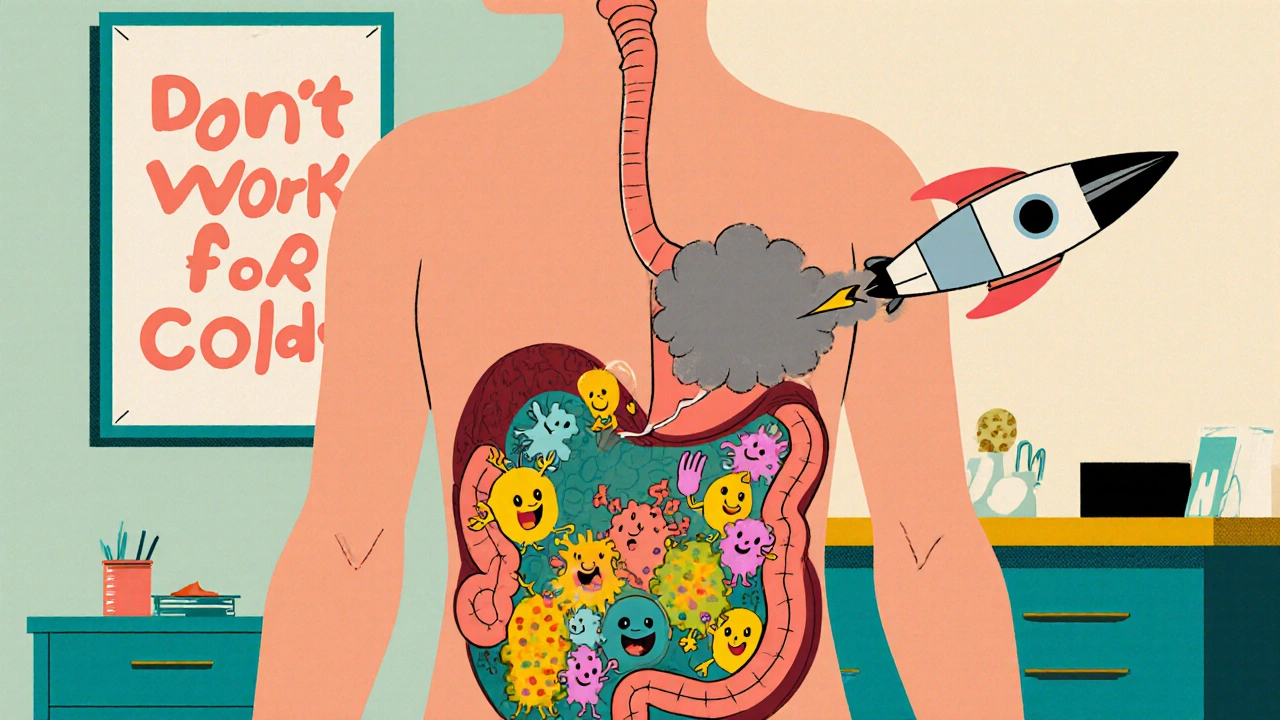C. diff: What It Is, How It Spreads, and How to Fight It
When antibiotics wipe out the good bacteria in your gut, C. diff, a highly contagious bacterium that causes severe diarrhea and colitis. Also known as Clostridioides difficile, it doesn’t just cause discomfort—it can land you in the hospital or worse. This isn’t some rare edge case. Every year in the U.S. alone, over 500,000 people get infected with C. diff, and nearly 30,000 die from it. Most cases happen after taking antibiotics, especially broad-spectrum ones like clindamycin or fluoroquinolones. But here’s the catch: you don’t have to be in a hospital to catch it. C. diff spores live on doorknobs, phones, and even your own skin. They survive bleach, heat, and time. Once they get into your gut, they multiply fast and release toxins that destroy the lining of your colon.
Who’s most at risk? People over 65, those on long-term antibiotics, and anyone who’s been hospitalized recently. But it’s not just the elderly. More and more healthy adults under 50 are getting infected after routine antibiotic use—like for a sinus infection or strep throat. And once you’ve had it once, your chances of getting it again jump dramatically. That’s because C. diff doesn’t just infect you—it changes your gut. The good bacteria that normally keep it in check? Gone. And rebuilding them isn’t as simple as popping a probiotic. Some people need fecal transplants just to restore balance. The good news? Prevention works. Washing your hands with soap and water (not just sanitizer) cuts transmission. Avoiding unnecessary antibiotics is even more powerful. And if you’re prescribed one, ask: "Is this really needed?" and "What’s the shortest course?"
There’s more to C. diff than just diarrhea. Severe cases bring fever, nausea, stomach pain, and even life-threatening inflammation. Doctors now have better tools—like fidaxomicin and bezlotoxumab—that target the toxin directly instead of just killing bacteria. But these are expensive, and not always covered. That’s why so many posts here focus on alternatives, side effects, and real-world choices. You’ll find guides on how to protect yourself after antibiotics, what probiotics actually help, and how to spot early signs before it turns dangerous. You’ll also see how other drugs like linezolid or tinidazole can sometimes trigger or treat related infections. This isn’t just about one bug. It’s about how modern medicine accidentally creates the conditions for it to thrive—and how you can fight back.

Antibiotic Stewardship: How Smart Prescribing Stops Resistance and Saves Your Gut
Antibiotic stewardship means using antibiotics only when needed and in the right way. It stops resistance, prevents deadly gut infections like C. diff, and saves lives. Learn how smarter prescribing protects your health.
